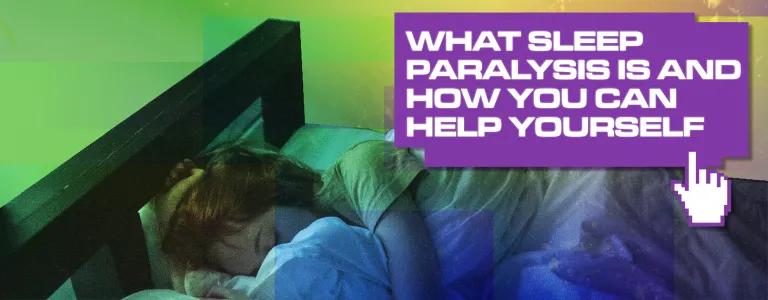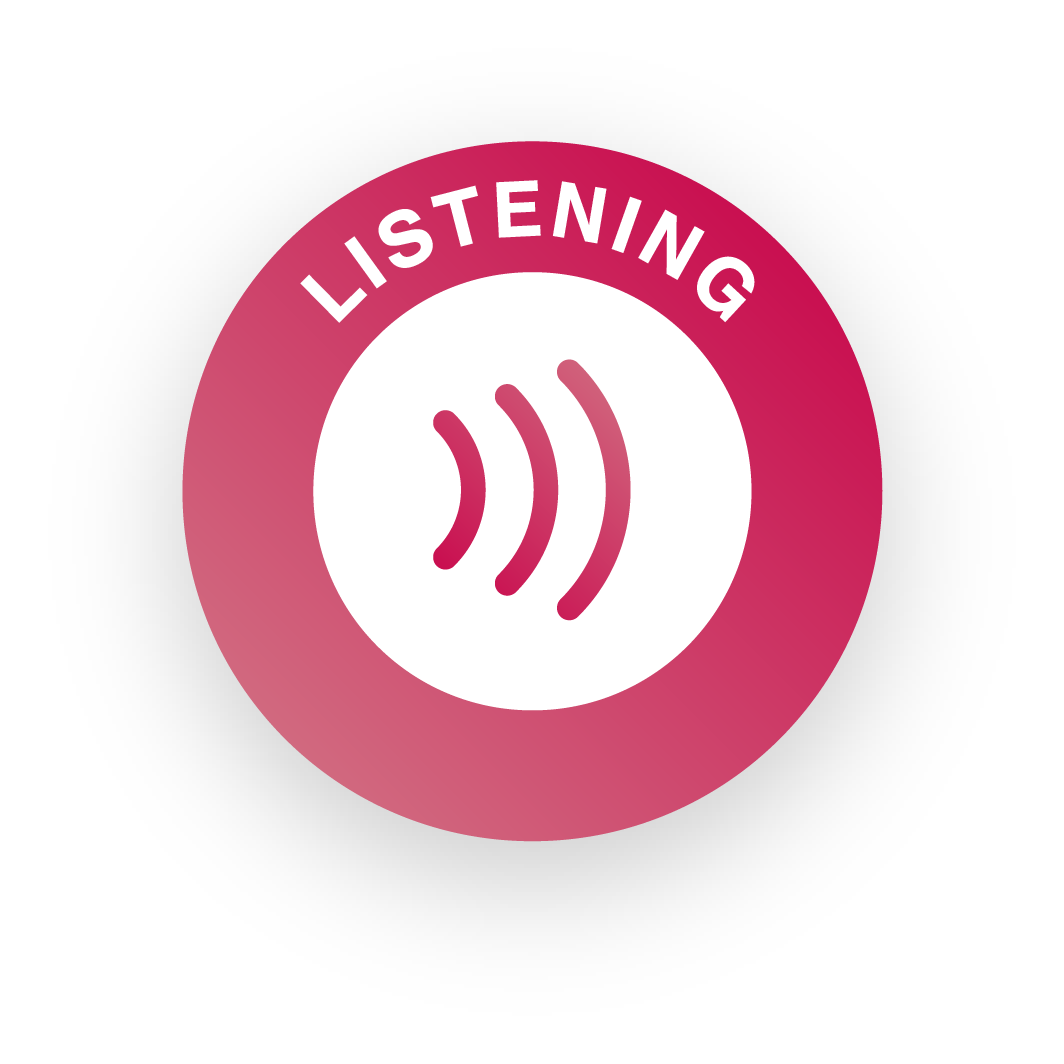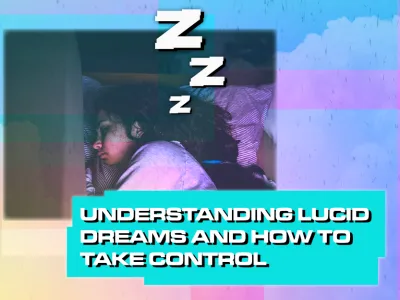
What Sleep Paralysis Is And How You Can Help Yourself
Include this article in your Skills Builder Journal. It could help you develop...
This one’s a little different to our lucid dreaming blog...it might get a bit spooky, so brace yourself! We’re talking about sleep paralysis - what it is, why it happens and how you can help yourself if it happens to you.
What is sleep paralysis?
Sleep paralysis is often quite a scary experience, and involves a temporary inability to move or speak as you are waking up or falling asleep, because of a brief loss of muscle control, known as atonia. It results in hallucinations, which are usually pretty nightmarish.

During an average REM cycle, atonia usually happens. However, on a normal day, atonia ends when you wake up - so you’re never conscious of the fact that you can’t actually move. But with sleep paralysis the atonia doesn’t quite stop. Researchers believe that sleep paralysis involves a mixed state of consciousness that blends being awake with REM sleep, which means the imagery of your dream cycle is still happening, even though your mind is technically awake. Crazy, right?
What is sleep paralysis like?
For most people, sleep paralysis results in hallucinations which are very different from normal dreams and are usually pretty awful and scary. According to research, around 90% of episodes are associated with fear while only the minority have more pleasant or even blissful hallucinations. The most common types of paralysis are:
Intruder hallucinations: the perception of a dangerous person or presence in the room with you. A lot of people call this their sleep paralysis demon.
Chest pressure hallucinations: these are also called incubus hallucinations and give the feeling of being suffocated. They also frequently come along with intruder hallucinations - two for the price of one, brilliant…
Vestibular-motor hallucinations: these are a bit different and give the feeling of movement, like flying, or out of body sensations.
Much like normal dream cycles, time plays a weird role in sleep paralysis. While the episode for the person having it may feel like it’s going on for hours, and get more and more distressing, it actually only lasts a few seconds to a few minutes. It can end on its own, with the person having it eventually being released from atonia and regaining full awake consciousness, or it can be interrupted by another person’s voice or touch.

Why does it happen?
Annoyingly, the exact cause of sleep paralysis isn’t really known. Some of the reasons it could happen are insomnia, disrupted sleeping patterns (like jet lag, or working unusual shifts), narcolepsy, PTSD, and anxiety or panic disorders.
Can I overcome sleep paralysis?
As the reasons for sleep paralysis are widely unknown, overcoming it can feel a bit intimidating. However, there are a few things you can do to try and relax as much as possible.
First up, make sure your sleeping environment is as good as possible! So, try to follow the same schedule every night, make sure your pillow and mattress are comfortable, try to limit any noise or light intrusion from where you sleep, stay away from caffeine before bed, and don’t look at any screens for at least half an hour before you sleep.
Similar to some of the ways to lucid dream, setting yourself up with positive thoughts can also help. Before going to bed, set some intentions and make a list of affirmations to try and remember as you fall asleep. Tell yourself that if you are to have an episode, it won’t harm you and it won’t last. Recite this until you feel comfortable and positive about anything potentially happening.
If you’re able to, it might be worth talking to a professional about your sleep paralysis too. As it could be triggered by other mental health conditions, learning some useful tools for those could also result in a decrease in sleep paralysis episodes. Check out The Mix, the UK’s leading support service for young people if you have anything you want to talk about. They offer free, confidential advice over the phone, live chat, or counselling service.
And remember, it’s important to be kind to yourself. Sleep paralysis often results in feeling more tired and emotionally drained, as it’s quite a stressful thing to go through. So, give yourself a big hug and some kind words, and make sure to let yourself know it’s only temporary.



